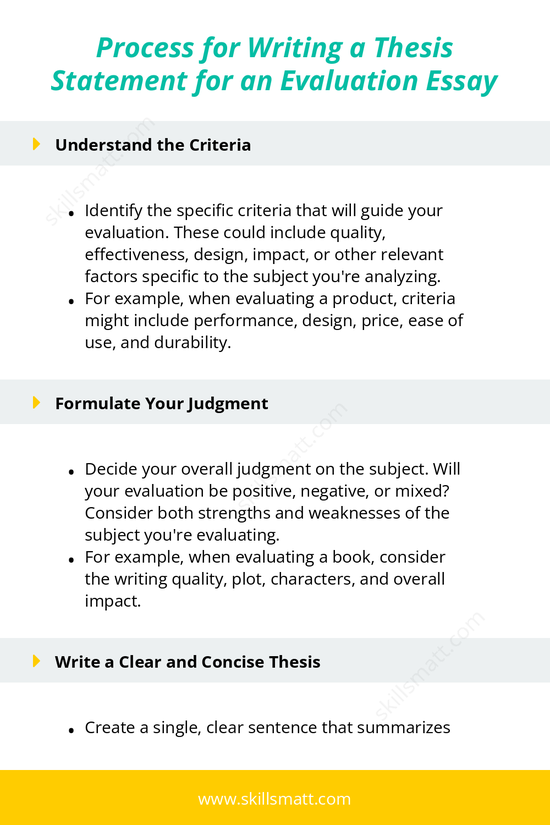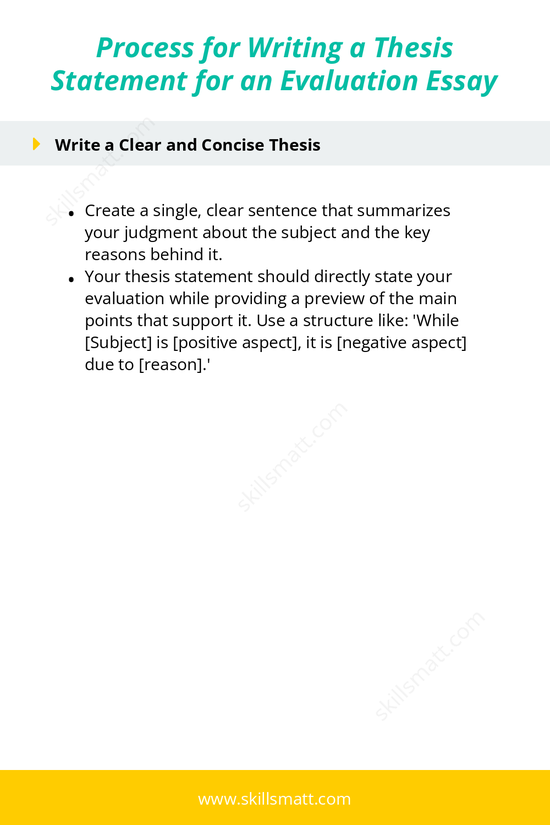Process for Writing a Thesis Statement for an Evaluation Essay
Understand the Criteria
- Identify the specific criteria that will guide your evaluation. These could include quality, effectiveness, design, impact, or other relevant factors specific to the subject you're analyzing.
- For example, when evaluating a product, criteria might include performance, design, price, ease of use, and durability.
Formulate Your Judgment
- Decide your overall judgment on the subject. Will your evaluation be positive, negative, or mixed? Consider both strengths and weaknesses of the subject you're evaluating.
- For example, when evaluating a book, consider the writing quality, plot, characters, and overall impact.
Write a Clear and Concise Thesis
- Create a single, clear sentence that summarizes your judgment about the subject and the key reasons behind it.
- Your thesis statement should directly state your evaluation while providing a preview of the main points that support it. Use a structure like: 'While [Subject] is [positive aspect], it is [negative aspect] due to [reason].'
Example Thesis Statement
- Subject: A new smartphone
- Criteria: Performance, design, battery life, and price
- Thesis Statement: 'The [Smartphone Name] is a powerful device with impressive performance and a sleek design, but its battery life is inadequate and its price is relatively high.'
Final Tips
- Ensure your thesis statement is concise but specific, clearly outlining the key points of your evaluation.
- Consider balancing positive and negative aspects in a mixed evaluation, or focus on one dominant strength or weakness depending on your judgment.
- Keep your audience in mind: your thesis should be compelling and directly guide them through the criteria you'll address in your essay.


